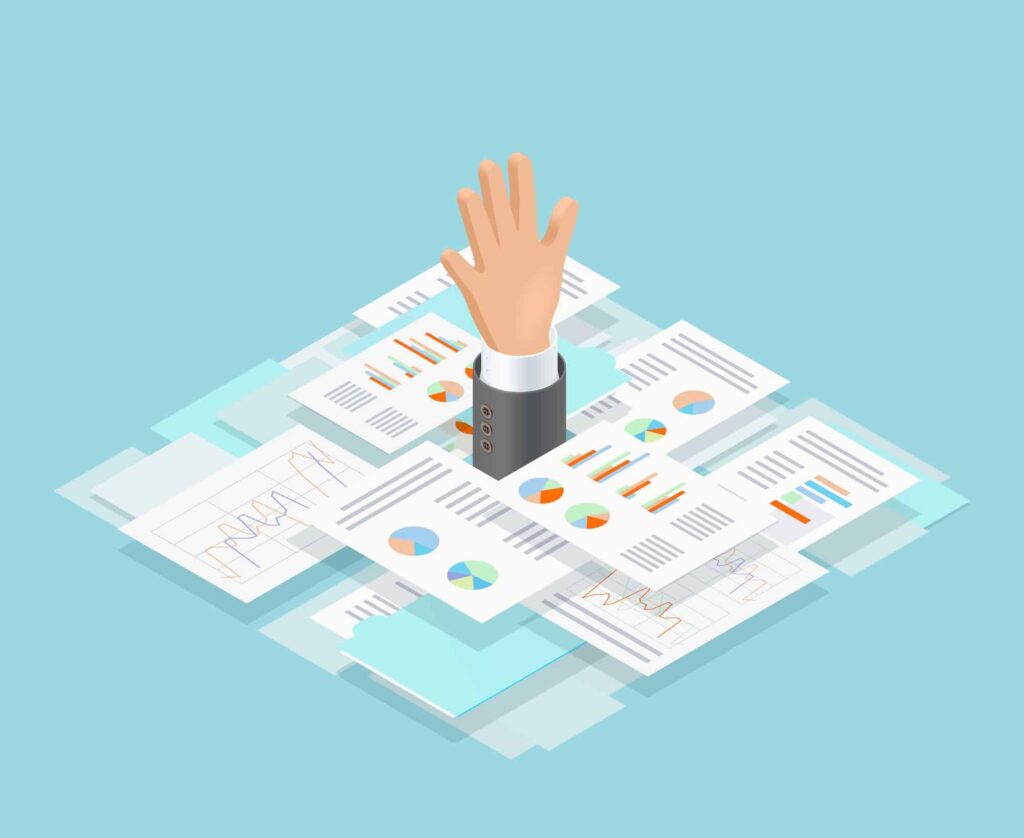Picture this: You’re surrounded by stacks of paper, flipping through spreadsheets, and trying to make sense of last month’s sales figures. Sound familiar? If you’re still managing your business with clipboards and manual spreadsheets, you’re not alone. But what if I told you there’s a better way? Let’s talk about data reporting and why it matters for your business.
91.9% of organizations achieved measurable value from data and analytics investments in 2023 (Source)
Key Benefits of Data Reporting
The Power of Organized Information
Remember the last time you couldn’t find an important invoice or spent hours tallying up monthly sales? Digital data reporting can turn those headaches into a thing of the past. Instead of rifling through file cabinets, imagine having all your important information at your fingertips with just a few clicks.
Take inventory management, for example. With a paper system, you might count stock once a month, leading to overstocking or stockouts. A simple digital system could update your inventory in real-time, saving you time and preventing costly mistakes.
Making Smarter Decisions for Your Business
Your business generates valuable data every day, but it’s hard to spot trends when they’re buried in paper records. Digital reporting tools can help you see the big picture.
Let’s say you run a small retail store. By looking at sales data over time, you might notice that certain products fly off the shelves in specific months. With this insight, you could stock up on these items just before demand peaks, boosting your sales and customer satisfaction.
Staying Ahead of Problems
In business, spotting problems early can save you from major headaches down the line. Data reporting can serve as an early warning system for your business.
Take late payments, for example. Manually tracking these can let some slip through the cracks. An automated system could alert you as soon as a payment is overdue, helping you maintain healthy cash flow.
Planning for the Future
Planning for the future without data is like trying to navigate without a map. Data reporting provides the insights you need to set realistic goals and make informed predictions.
Instead of guessing next year’s sales based on gut feeling, you could use historical data to create accurate forecasts. This can help with everything from budgeting to staffing decisions.
Getting Started with Data Reporting
Moving from paper to digital might seem daunting, but remember: you don’t need to transform your entire business overnight. The key is to start small, focus on one area at a time, and gradually build your digital skills and systems. Here’s a step-by-step approach to get you started:
Pick One Thing to Track Choose a single, important aspect of your business to start tracking digitally. This could be daily sales, inventory levels, or customer contacts. Keep it simple – pick something you’re already tracking on paper.
Make It a Habit Set aside 10-15 minutes each day to update your data. Consistency is key. Maybe do it right after closing up shop or first thing in the morning.
Review and Learn At the end of each week, take a look at your data. What patterns do you see? Are certain products selling better than others? Is there a busy day of the week? This is where the magic of data reporting begins – you’ll start seeing trends you might have missed before.
Gradually Add More Once you’re comfortable with your first digital tracking system, think about what else you could track. Maybe it’s time to digitize your expense tracking or customer feedback. Add one new thing at a time.
Remember, the goal is progress, not perfection. Even these small steps can make a big difference in understanding and improving your business. As you get more comfortable with digital tools like Cadynce, you’ll wonder how you ever managed with just paper and pencil!
Overcoming Common Concerns
It’s natural to have concerns about adopting new technology. You might worry about data security or fear losing the personal touch that comes with traditional methods.
Remember, data reporting tools are designed to complement your business instincts, not replace them. They provide additional insights to support your decision-making. As for security, many digital tools now offer robust protection, often safer than paper records that can be lost or damaged.

Conclusion
Transitioning from clipboards to computers doesn’t happen overnight, but the benefits for your business can be tremendous. From saving time and money to making smarter decisions and keeping customers happy, data reporting can transform how you operate.
Don’t let valuable insights slip through your fingers. Take the leap into efficient, modern business management with Cadynce. Visit Cadynce.com to schedule a call to talk about your business needs!






